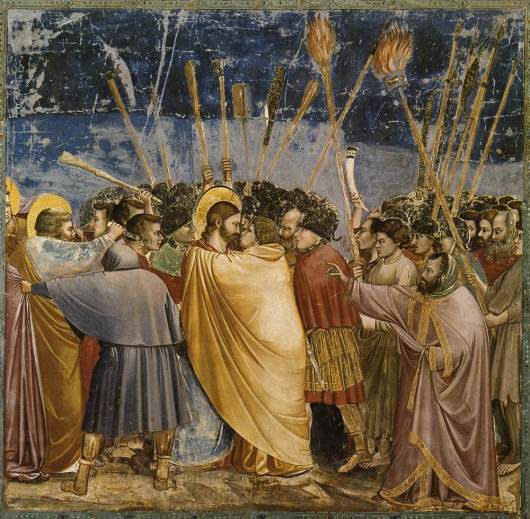(Continued)
Now, concerning Heb 6:4-8, there are different interpretations. The main ones include:
- Those in Heb 6:4-8 are Christians who have fallen away and lost their salvation;
- They are Jews who have tried Christianity but returned to Judaism;
- This passage talks about the loss of rewards for backsliders but not the loss of salvation;
- This is a hypothetical case to warn Christians about the dangers of apostasy, but it did not happen.
I will discuss each briefly and then tell my position:
Saved and then lost. This assumes that Christians are preserved by their perseverance. If they endure, they are saved. If they don’t, they will be lost. But according to:
- 1 Pet 1:3 Blessed be the God and Father of our Lord Jesus Christ, who according to His great mercy has caused us to be born again to a living hope through the resurrection of Jesus Christ from the dead, 4 to obtain an inheritance which is imperishable and undefiled and will not fade away, reserved in heaven for you, 5 who are protected by the power of God through faith for a salvation ready to be revealed in the last time.
Christians are protected by God’s power, not the strength of their perseverance. So, this interpretation is not valid.
Jews who are not yet Christians. According to this view, these are seekers who tasted the goodness of the gospel but never embraced it and returned to the law when they faced trials. Let’s check what they have experienced to see if they are believers:
Enlightened. To give light, to shine, light up, or illumine. The same Greek verb phōtizō occurs one more time in Heb 10:32 But remember the former days, when, after being enlightened, you endured a great conflict of sufferings.
So, the group in Heb 6 enjoyed the same enlightenment as the Christians in Heb 10.
Tasted of the heavenly gift (v 4), tasted the good word of God (v 5), tasted the powers of the age to come (v 5). Tasted translates the Greek verb geuomai, which means to try the flavor of, partake of, or enjoy. Heavenly gift is not further defined. Some suggest it to be the free “gift of God” (Rom 6:23) or eternal life. Others believe the gift is grace (Eph 2:8). Some interpret “the word of God” as the Scriptures or the gospel. Some equate “the powers of the age to come” to be “signs and wonders and various miracles” (Heb 2:4). This school contends that since the Heb 6 group only “tasted” the benefits of belief but did not swallow them, they were only seekers but not yet believers. However, besides Heb 6:4 and 5, tasted also occurs in Heb 2:9 But we do see Him who was made for a little while lower than the angels, namely, Jesus, because of the suffering of death crowned with glory and honor, so that by the grace of God He might taste death for everyone.
Jesus did not just “taste” death partially. He died the most cruel death invented by men, for men! Hence, the premise that “tasted” falls short of full participation is not substantiated.
Partakers of the Holy Spirit. Greek adjective metochos. Sharing in, or a partner in a work or office. Some interpret this to be sharing or having fellowship with the Holy Spirit. Again, this word’s other usage in Heb indicates otherwise:
- Heb 3:1 Therefore, holy brethren, partakers of a heavenly calling, consider Jesus, the Apostle, and High Priest of our confession;
- Heb 3:14 For we have become partakers of Christ if we hold fast the beginning of our assurance firm until the end,
- Heb 12:8 But if you are without discipline, of which all have become partakers, then you are illegitimate children and not sons.
If a person shares in the heavenly calling, Christ, the Holy Spirit, and the Father’s discipline, having a part with all three Persons of the Trinity, he is an insider, not an outsider! Heb 6:4 is particularly relevant because of Rom 8:9b, “But if anyone does not have the Spirit of Christ, he does not belong to Him.”
My conclusion based on the evidence is that these are not just Jews but Christians.
Lose rewards but not salvation. Proponents claim that the writer of Hebrews is not talking about losing salvation in chapter 6, only the rewards of salvation. What does the text say? We have already examined what these people experienced in v 4-5 to be part of the salvation process. What about v 6? Fallen away translates the Greek verb parapiptō, which means to deviate from the right path, turn aside, wander, to error. It occurs only once in the NT in Heb 6:6. What is the outcome of this falling away from true faith? It is impossible to renew them again to repentance. They have repented before. If they fall away, they cannot renew their repentance again. Repentance from what? The word repentance is the Greek noun metanoia, translated uniformly as repentance in the KJV, a change of mind or reversal of decision. Of particular interest is its occurrence in Hebrews besides v 6:
- Heb 6:1 Therefore leaving the elementary teaching about the Christ, let us press on to maturity, not laying again a foundation of repentance from dead works and of faith toward God,
- Heb 12:17 For you know that even afterward when he (Esau) desired to inherit the blessing, he was rejected, for he found no place for repentance, though he sought for it with tears.
Both were genuine repentance, not false. I conclude that Heb 6:6 is about the consequence of falling away from faith in God, not just rewards not even specified in the entire paragraph.
Hypothetical for warning. This school contends that this verse presents a hypothetical case based on KJV (NKJV, RSV):
- Heb 6:6 If they shall fall away, to renew them again unto repentance; seeing they crucify to themselves the Son of God afresh, and put him to an open shame.
They believe the “if” in “if they shall fall away” is a matter of possibility, but had not happened. Opponents point out that the premise does not stand, as there is no “if” in Greek. The phrase is a participle and can be translated as “having fallen away” (see Interlinear). Another objection is, “If this were hypothetical, why bother warning someone against something that can’t happen?”
Nevertheless, there is some merit in this interpretation given:
- Heb 6:9 But, beloved, we are convinced of better things concerning you, and things that accompany salvation, though we are speaking in this way.
My view is that of the four common interpretations, the first three have serious difficulties. I am not fully satisfied with the fourth, but the problems are less serious than the others. My interpretation principles are to start with exegesis instead of imposing a theological system to explain an idea, and to use clear passages to clarify more obscure verses.
On balance, I believe the “once saved, always saved” view to be valid, as this article tried to demonstrate.







